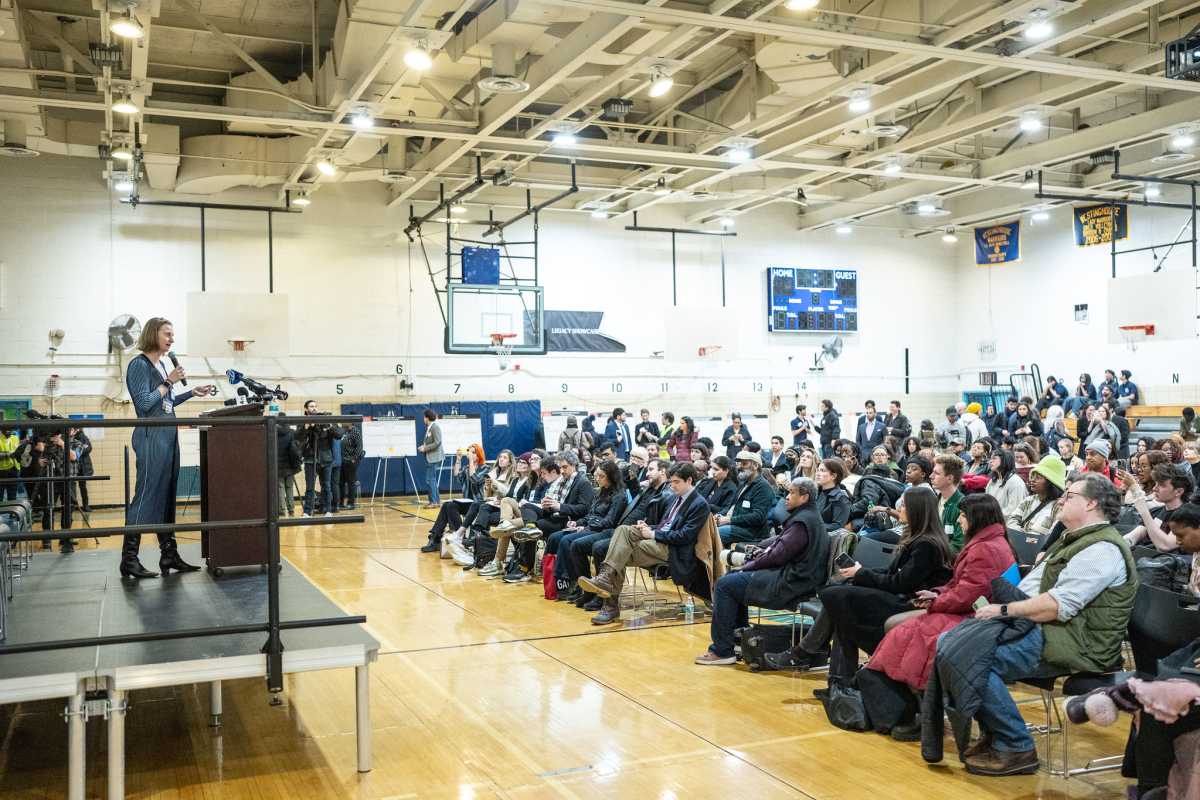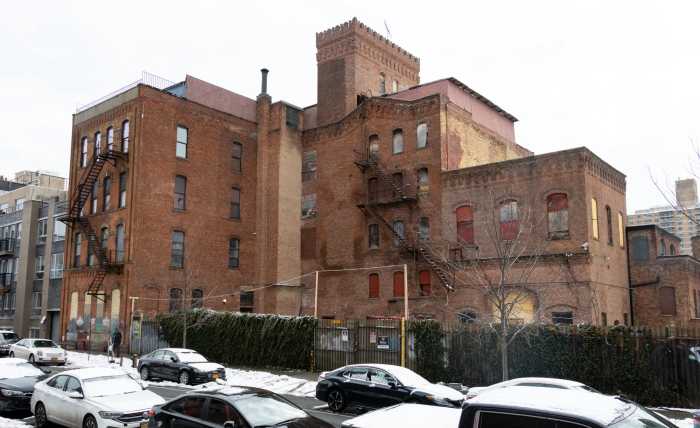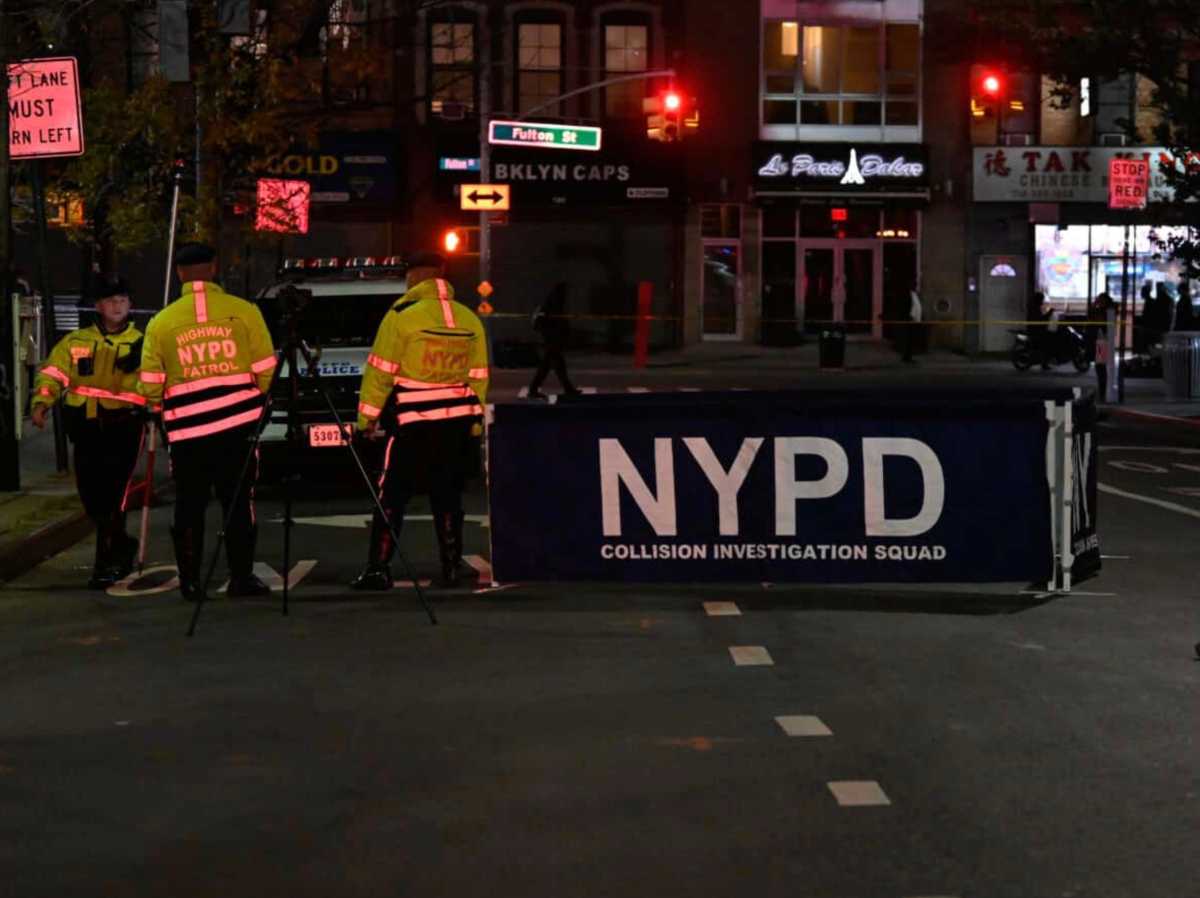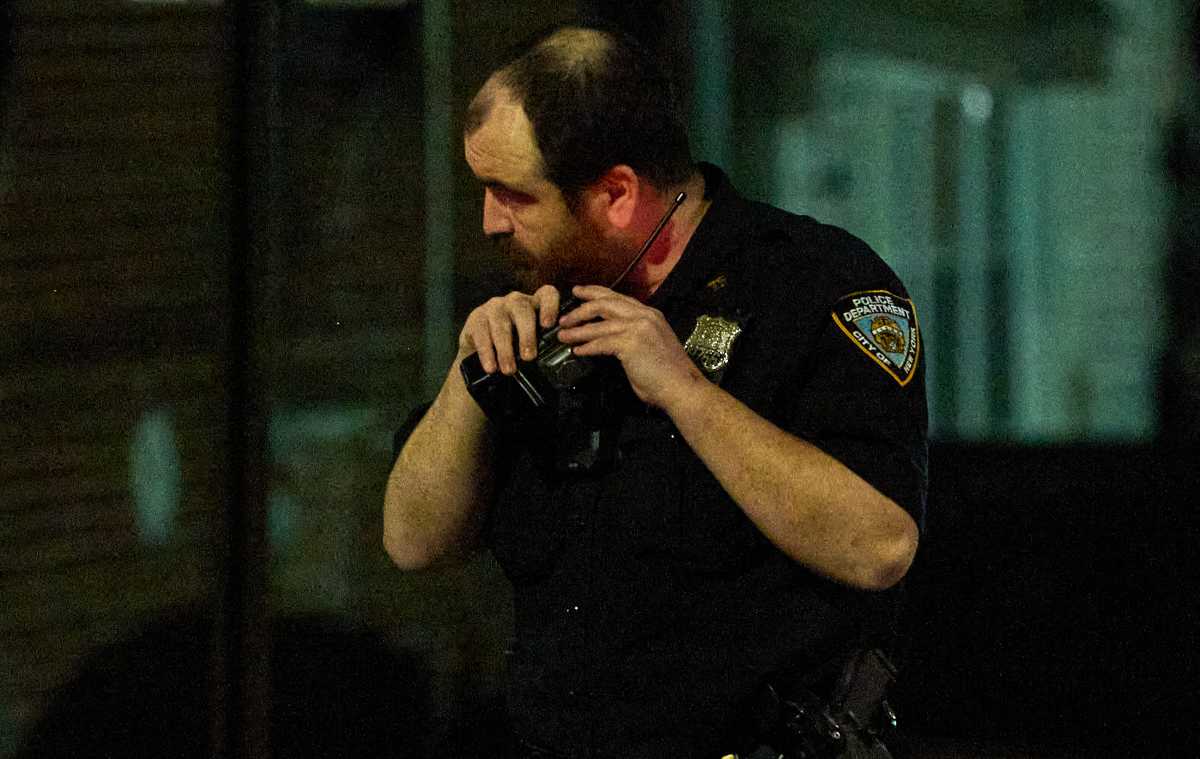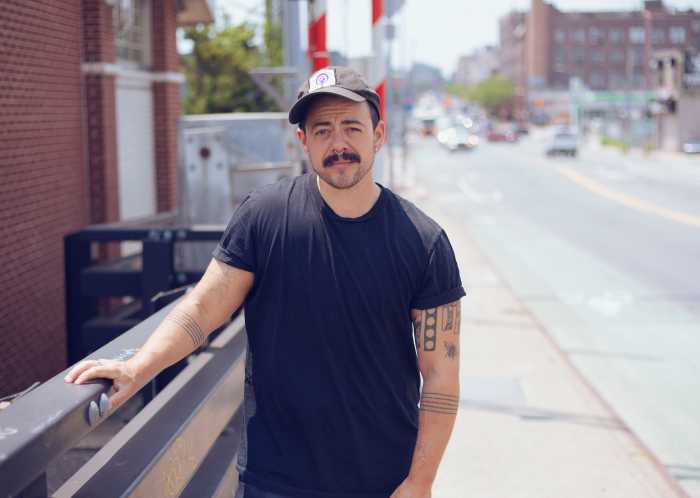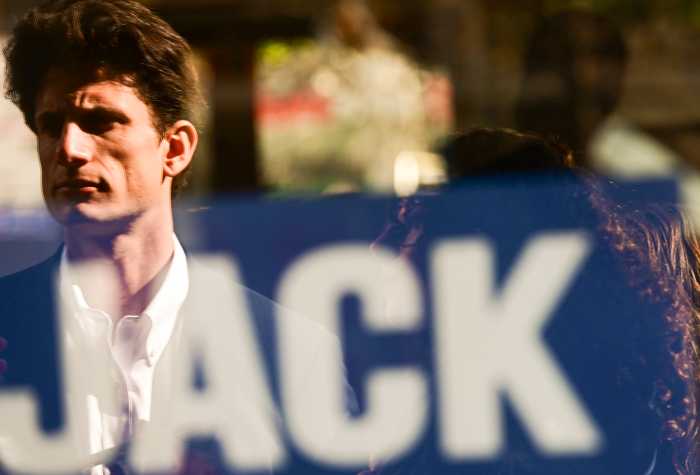Aricka Westbrooks didn’t know when she opened her quirky fried turkey
business on Myrtle Avenue a year ago that Jive Turkey would be quickly
featured in the New York Times, Gourmet magazine and on the Food Network.
She very likely did know that her upscale menu of $7 dishes and $4 sides
would appeal to the large hub of Brooklyn, Manhattan and suburban residents
— 22,000 white-collar workers — employed just minutes away in
the Metrotech business complex developed by Bruce Ratner’s Forest
City Ratner company 10 years ago.
When she learned that marketing to the employees was off limits, her feathers
were more than a little ruffled.
Westbrooks, the owner of the restaurant on Myrtle Avenue at Waverly Avenue,
thought nothing seemed more surefire than appealing to the Metrotech workforce
with her hearty food and delivering to them would be a sweeter recipe
for success than her honey pecan-glazed turkey and, of course, her famous
fried turkey. But first they had to know about it.
But when she asked the Metrotech Business Improvement District if she
could advertise her delivery and catering services in its newsletter,
which is distributed to Metrotech offices, she was told it wouldn’t
happen.
“I told him, ‘I’d like to let them know I’m here,
and I do catering,’” she said, recalling a conversation she
had with the BID’s executive director, Michael Weiss.
“He told me, ‘We do not allow businesses that do not participate
in the BID to advertise in the BID newsletter.’ And I said, ‘Well,
I have a problem with that,’” she told The Brooklyn Papers.
Westbrooks said she had also asked for a distribution list for where they
send the newsletters, which Weiss also refused to give her.
Weiss confirmed that the newsletter didn’t take advertising, and
explained that to open it up to outside business wouldn’t serve the
interests of paying members in the Metrotech BID.
“I gave a couple of different options I was hoping might work,”
said Westbrooks, whose business lies less than a mile from the heart of
the Metrotech campus. “The response was, ‘No, no, no.’
The only suggestion she got was to go door-to-door, write down the addresses
and mail menus, which she said was far too time consuming.
Instead, she sent an employee to stand in front of the J.P. Morgan Chase
building at 4 Metrotech Center and hand out menus individually as people
went into work in the morning.
“He was there maybe 10 minutes,” recalled Westbrooks. “Somebody
saw him on the security cameras and said, ‘You can’t pass out
menus here.’” A security guard escorted him off the premises.
Weiss said the BID, which pays for things like street cleaning and security,
had nothing to do with the no-fliers policy.
“It has to do with the tenants in those buildings,” he said.
“The companies that inhabit the big buildings at Metrotech just don’t
allow any advertising in those buildings flat out.”
Councilwoman Letitia James, who called Weiss after receiving a copy of
a letter Westbrooks sent to Metrotech landlord Forest City Ratner, countered
Weiss’ claim.
James said that Weiss told her “there was a contractual arrangement
with the venders within Metrotech that they would have exclusive rights
to solicit the businesses and residents within Metrotech and no one else.”
Weiss said handing out fliers outside Metrotech buildings was tantamount
to trespassing on private property.
“In effect, if you’re out on the Metrotech Commons, you’re
in a private building,” Weiss told The Papers. “The owners of
the property have a right to say you can and cannot be there,” he
told The Papers.
Westbrooks is not the first merchant to have been shot down in an effort
to spread the word about a business in Metrotech.
Three years ago, a Willoughby Street dentist who had fliers printed, and
paid to have them distributed by hand to passersby near Fulton Mall and
in Metrotech, was told by police that he would have to cease and desist
from handing out the fliers on the street.
He eventually had to pay extra to have the 40,000 fliers included as an
insert in a daily newspaper.
Weiss said he’d been confronted by “a lot” of area business
owners with the same gripe as Westbrooks, and they are working with the
Myrtle Avenue Revitalization Project to come up with a plan “to help
the businesses help themselves.”
Michael Blaise Backer, acting director of MARP, said the organization
planned to launch a Web site of local menus that it would collectively
market by postcard to Metrotech.
“We’re trying as hard as we can to sort of penetrate those businesses
down there,” he said, but sounded displeased at Westbrooks’
one-woman campaign. “We want to solve it as a more diplomatic point
a view, and say, ‘Look, you guys need to sell locally, you need to
buy locally. That’s part of the whole sell of economic development.’”
Backer said that was the foundation that allowed Metrotech to be built
in the first place.
Westbrooks said it was not her intention to bite the hand she may potentially
feed, but she points out the problem must be the same for many other small
business owners.
Jerry Shen, owner of Lichee Nut, a Chinese restaurant with delivery on
Montague Street, said he had the same problem.
“It’s hard,” he said, “we just send the menus when
there is a delivery.” He said deliveries to Metrotech were regular,
but “not a lot.”
Many of the businesses that have entered Metrotech have done so with massive
public subsidies meant to keep companies in New York and create a third
major business district, adding Downtown Brooklyn to Lower and Midtown
Manhattan.
The promise of Metrotech was that Downtown Brooklyn would evolve into
a more community-oriented version of the Manhattan business districts,
where Brooklynites could work and where shopping strips such as Fulton
and Willoughby streets would thrive on the foot traffic from the office
workers.
While some of those promises materialized, the inward-facing campus, with
ground-floor restaurants, has also insulated the workers from the surrounding
retail strips.
James, at a Nov. 10 Community Board 2 meeting, spoke angrily of the predicament
of Jive Turkey and other local businesses trying to break into the fortress
of potential Metrotech customers. She said that despite claims by Forest
City Ratner, the situation shows development will not necessarily stimulate
the local economy.
“Is this the writing on the wall for the proposed Nets arena?”
she asked. “We need to know whether or not the same arrangement will
be set up so that local businesses will be shut out.”
Forest City Ratner principal owner Bruce Ratner, who last summer purchased
the New Jersey Nets, plans to build a basketball arena surrounded by three
office skyscrapers and 13 residential and commercial buildings east of
the intersection of Flatbush and Atlantic avenues. The development site
encompasses six blocks, primarily in Prospect Heights, and is also bounded
by Dean Street and Vanderbilt Avenue.
A concern among some critics of the plan is that the proposal to build
4,500 units of housing would demap some streets, meaning they would no
longer be public property. This would create campus-like super-blocks,
with the same private-property issues as have been raised in Metrotech.
Nets or no, Westbrooks, who delivers whole prepared turkeys nationwide,
already has at least one sports team as a client.
“We’ve delivered to Yankees Stadium,” she said. “I
can deliver to the clubhouse, but I can’t deliver down the street.”


